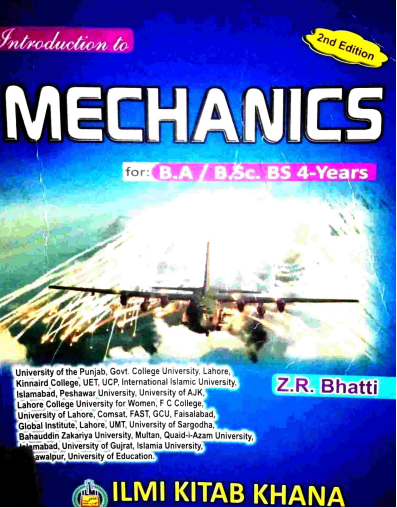What is Mechanics?
Mechanics is a branch of applied mathematics and physics that deals with the motion of objects and the forces that cause this motion. It provides mathematical tools and models to describe, predict, and analyze the physical behavior of systems, from particles to rigid bodies.
Key Concepts:
Kinematics: Describes motion (position, velocity, acceleration) without considering the cause.
Dynamics: Studies the relationship between motion and the forces affecting it.
Statics: Analyzes objects in equilibrium, where all forces and torques are balanced.
Newton’s Laws: Fundamental laws governing motion and force.
Work and Energy: Concepts that describe how forces do work and how energy is conserved or transformed.
Momentum: A measure of an object’s motion, conserved in isolated systems.
Rotational Motion: Motion involving spinning or rotating bodies, including torque and angular momentum.
Applications:
Engineering: Structural analysis, machine design, robotics, and aerospace systems.
Physics: Explains natural phenomena like planetary motion and wave mechanics.
Automotive Industry: Vehicle dynamics, crash simulations, and safety systems.
Sports Science: Analyzes motion and force in athletic performance.
Architecture: Ensures building stability and load-bearing design.
Mechanics forms the foundation of classical physics and is essential in both theoretical analysis and real-world applications across science and engineering.

Mechanics
Murray R.

Mechanics
Z R Bhati
Mechanics Notes
